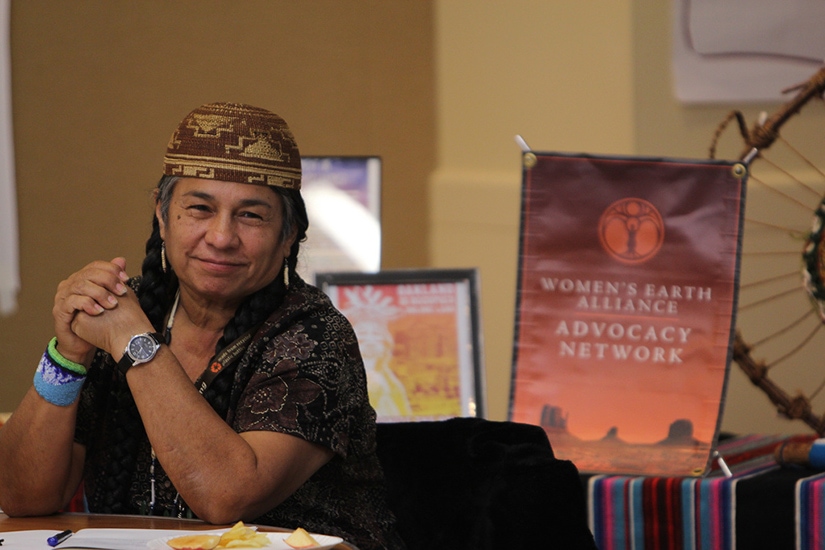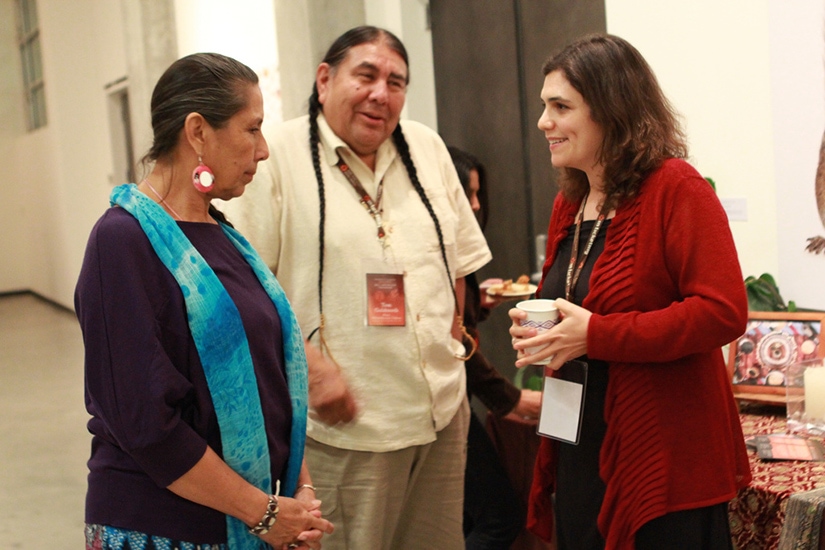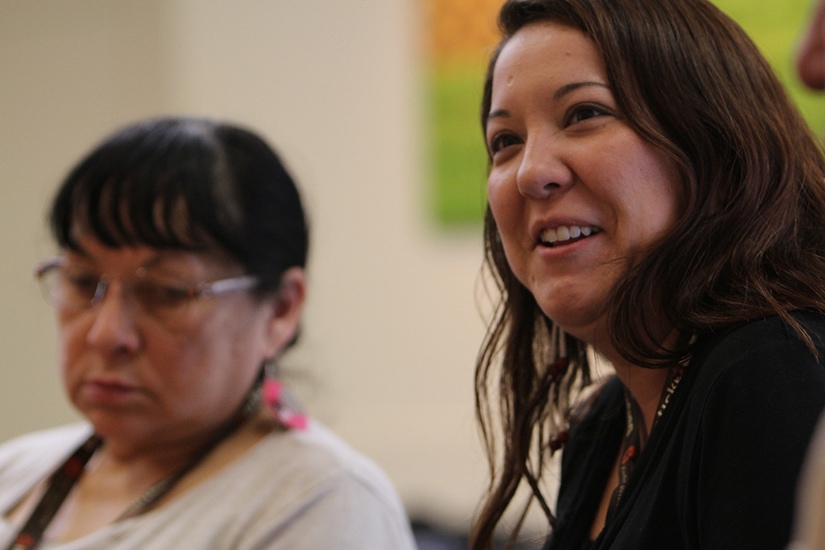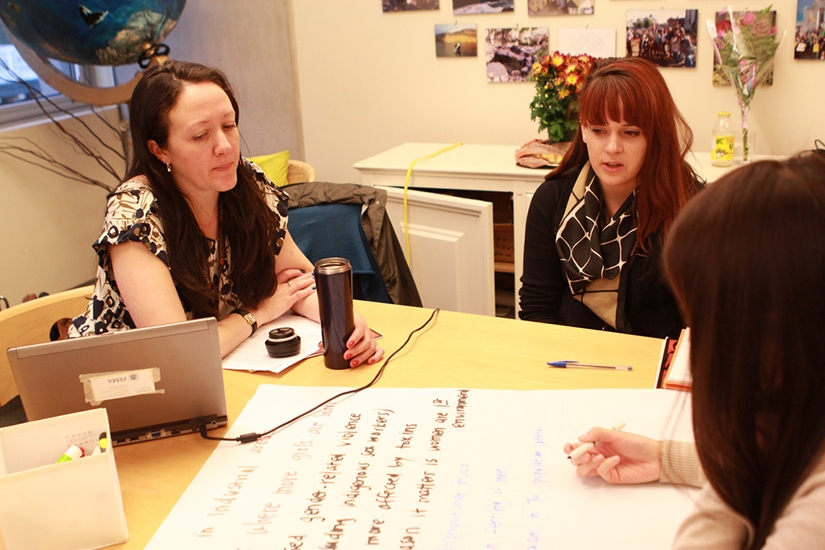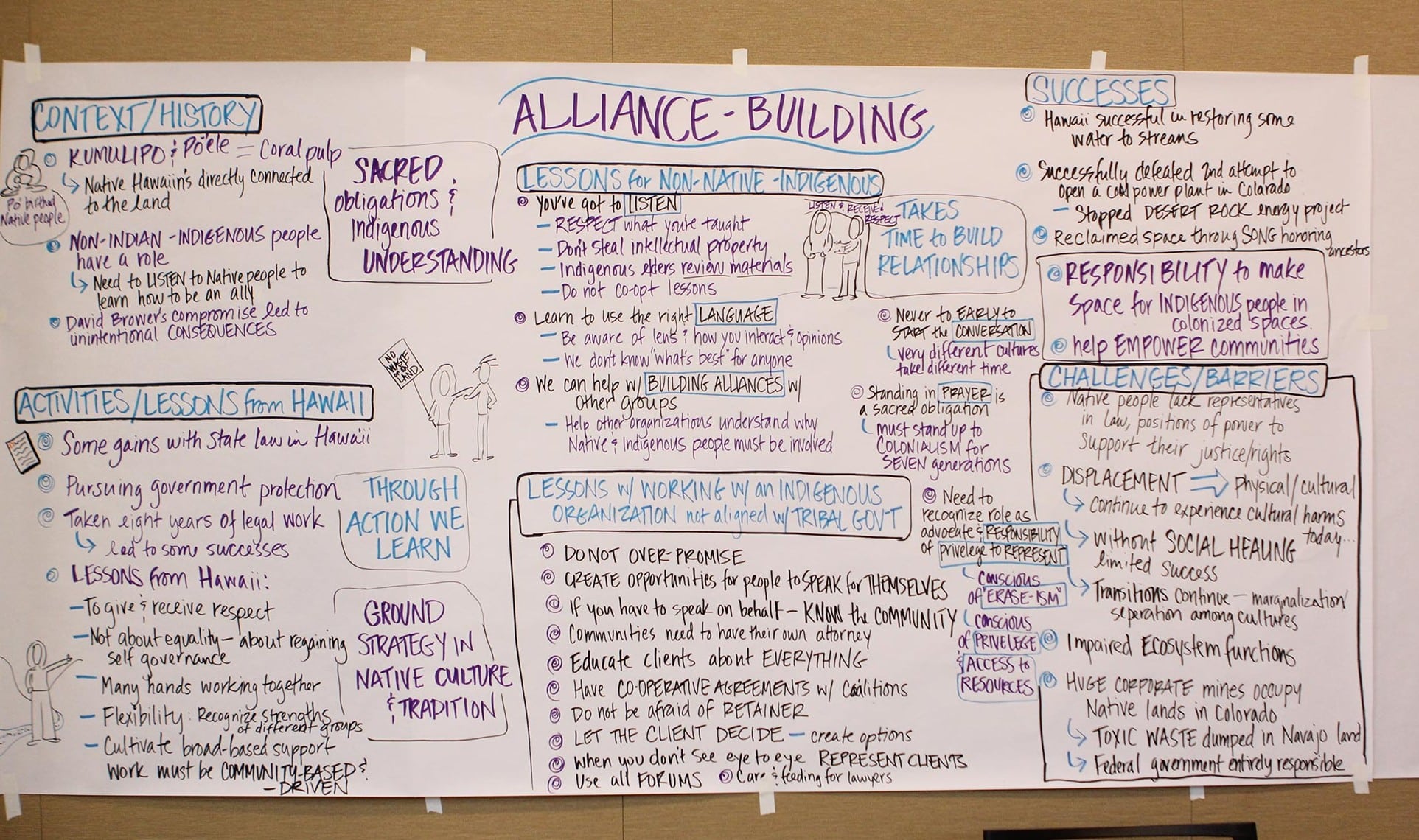
“As a Native person, a practitioner, and an attorney, I found it very inspiring and helpful to strategize in a way that’s real and that’s culturally grounded – this is something very rare, and has given me a lot of hope for the work that I do.”
— Kapua Sproat (Kanaka Maoli) of the University of Hawaii

In November 2011, WEA and Indigenous Environmental Network convened 75 advocates and community leaders for strategic collaboration with North American Indigenous women on environmental justice.
Over the course of the three-day training, participants engaged in intensive dialogue and learned key tools and strategies for advancing environmental justice with Indigenous peoples.
AT A GLANCE
Half of all Native Americans live in communities with unregulated toxic waste sites.*
Indigenous lands in North America are home to the nation’s largest coal strip mine, the largest uranium deposit, and the world’s largest oil extraction project.*
70% of the world’s uranium deposits are located on the lands of indigenous peoples.*

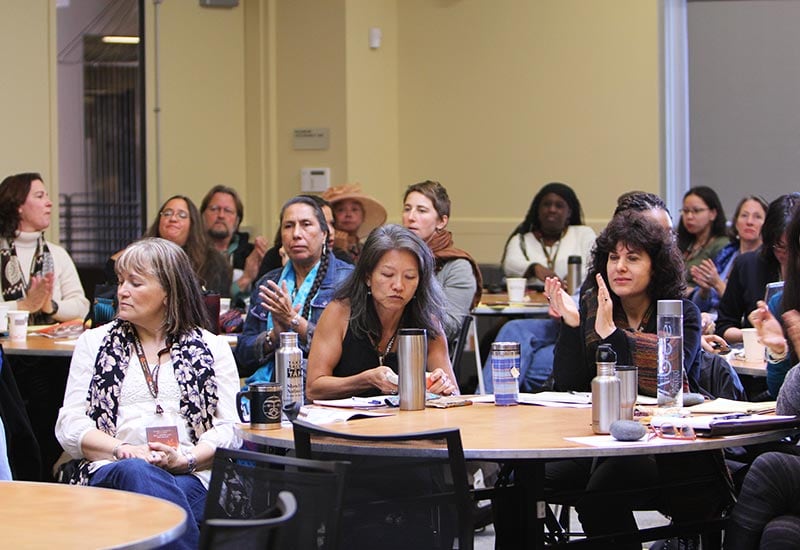
Background
North American Indigenous communities face the continual and systemic targeting of their sacred lands for mineral extraction, hazardous waste dumping, oil refineries and coal-fired power plants, and commercial development. As community caretakers, guardians of future generations, and resource stewards, Indigenous women are often on the frontlines in environmental crises. These courageous women leaders engage non-violent direct action, the courts and legislatures, and business development strategies to accomplish their goals. Yet the access gap – limits on financial resources, personnel, and information – can prevent their success in law and policy arenas.
THE TRAINING
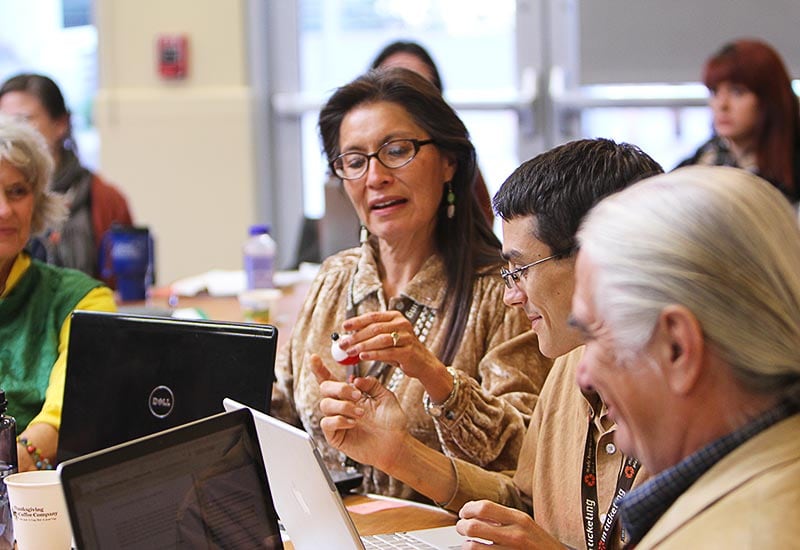
In panel presentations to the entire group, as well as small-group break-out sessions, experienced activists and practitioners spoke on best practices for advocacy on environmental health, sacred lands protection and energy justice, as well as emerging advocacy tools such as international instruments like UNDRIP, the green economy, and the rights of nature. As our most pressing shared global issue, climate change was a central theme of all of the discussions.
The training forged and strengthened strategic alliances between a thriving community of advocates working in law, health and environmental policy, green business, and other critical arenas, and Indigenous women leading environmental and economic justice campaigns. Advocates built capacity in using tested and emerging advocacy tools; learned about how to be effective allies, and participated in strategies for action.
OUR TEAM
Advocacy Training Steering Committee Members: Jihan Gearon (Indigenous Environmental Network), Tom Goldtooth (Indigenous Environmental Network), Debra Harry (Indigenous Peoples’ Council on Biocolonialism), Winona LaDuke (Honor the Earth), Toby McLeod (Sacred Land Film Project), Tia Oros Peters (Seventh Generation Fund for Indian Development), Carolyn Raffensperger (Science and Environmental Health Network), and Janet MacGillivray Wallace (Wallace Global Fund)
Advocacy Training Host Committee Members: Sara Ellis-Conant (Young Women Social Entrepreneurs), Michael Harris (University of Denver Environmental Law Clinic), Susan Kraham (Columbia Law School Environmental Law Clinic), Mark Levitan (International Council of Thirteen Indigenous Grandmothers), Melissa Scanlan (Midwest Environmental Advocates), and Nina Simons (Bioneers; not in attendance)
Facilitation: Roberto Vargas, Ph.D., New World Consulting
PRESENTERS & PARTICIPANTS
Presenters
Alberto Saldamando, J.D. (Zapoteca, Chicano), International Indian Treaty Council
Angela Mooney D’Arcy, J.D. (Acjachemen), Coalition to Save Panhe
Arjun Makhijani, Ph.D, Institute for Energy and Environmental Research
Brad Bartlett, J.D., Energy Minerals Law Center
Carolyn Raffensperger, J.D., Science and Environmental Health Network
Carrie LaSeur, J.D., Plains Justice
Casey Camp (Ponca), Coyote Creek Center for Environmental Justice
Debra Harry, Ph.D. (Northern Paiute), Indigenous Peoples’ Council on Biocolonialism
Jack Trope, J.D., Association on American Indian Affairs
Julie Cavanaugh-Bill, J.D., Western Shoshone Defense Project
Jihan Gearon (Dine’), Indigenous Environmental Network
June Lorenzo J.D., Laguna Pueblo
Kapua Sproat, J.D. (Native Hawaiian), Ka Huli Ao Center for Excellence in Native Hawaiian Law
Matt Pawa, J.D., Pawa Law Firm
Melissa Nelson, Ph.D. (Anishinaabe, Metis), Cultural Conservancy
Robert Gough, J.D., Intertribal Council on Utility Policy
Sharon Venne, J.D. (Cree), international Indigenous rights advocate
Shannon Biggs, Global Exchange
Ted Schettler, M.D., M.P.H., Science and Environmental Health Network
Tom Goldtooth (Dine’ and Dakota), Indigenous Environmental Network
Valerie Martinez (Mexican/ Cree/ Apache/ Ojibwe), Indigenous Green Jobs Coalition
Wahleah Johns (Dine’), Black Mesa Water Coalition
Participating Firms and Organizations:
Center for Biological Diversity
Chadbourne & Parke
Earthjustice
Food & Water Watch
Holland & Knight
International Accountability Project
NAACP
Shute, Mihaly & Weinberger
Texas Tech University School of Law
Three Degrees Project
University of Denver Environmental Law Clinic
Vermont Law School
SPECIAL EVENTS
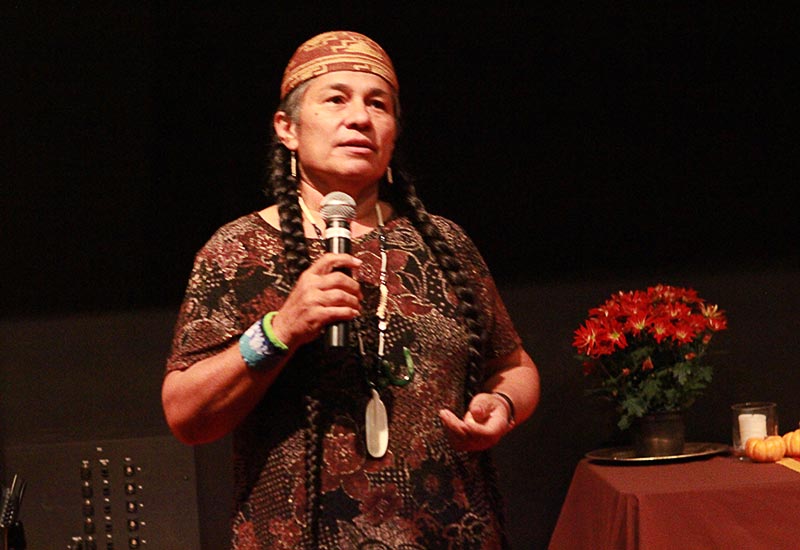
On Friday evening, November 4th, we opened the Training for our community to learn from leading environmental justice activists Caleen Sisk Franco (Winnemem Wintu), Casey Camp (Ponca), and Tom Goldtooth (Dine’ and Dakota), for Steadying the Seasons: Indigenous Peoples on the Front Lines of Climate Change in North America. Speakers shared their front-line struggles for climate justice throughout the United States, and their visions for balance, justice and resilience.

